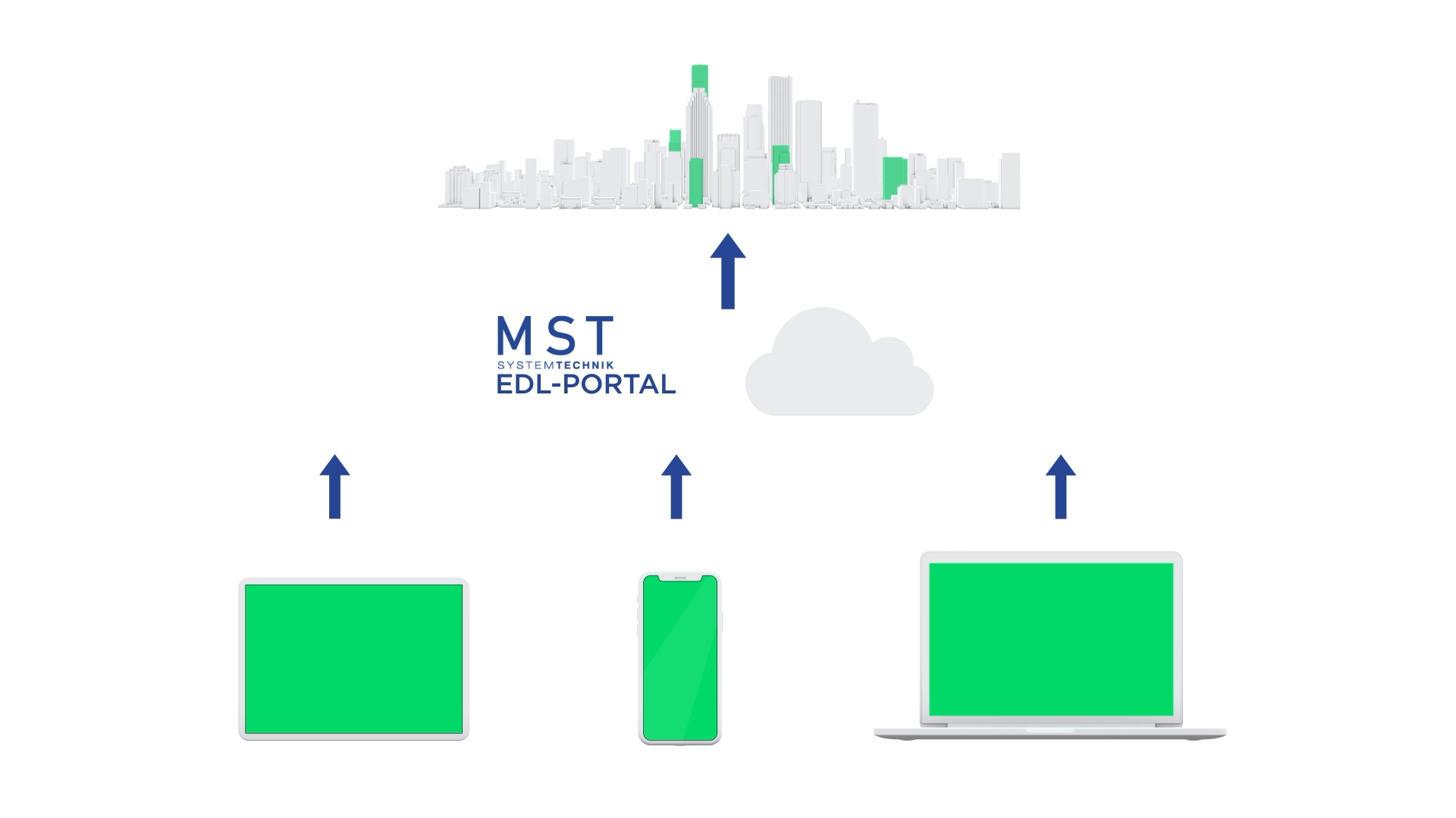
Sustainability and efficiency
The EDL portal is a powerful tool for promoting sustainability and efficiency in energy management. By integrating various functions and tools, the EDL portal supports operators in optimizing their energy consumption, reducing costs and achieving their sustainability goals.
1. Importance of sustainability and efficiency
Sustainability and efficiency are decisive factors for responsible energy management and reducing the ecological footprint. By specifically optimizing energy consumption and resource use, operators can not only reduce costs, but also contribute to environmental protection and secure their long-term competitiveness.
2. Main components of sustainability and efficiency in the EDL portal
2.1. Energy management tools
- Monitoring and analysis: The EDL portal enables continuous monitoring of energy consumption and analysis of consumption patterns in order to identify potential savings.
- Automation: Automated control mechanisms optimize the operation of technical building systems and minimize energy consumption.
2.2. Integration of renewable energies
- Generation management: The EDL portal enables the integration and management of renewable energy sources such as solar or wind energy to maximize self-consumption and reduce dependence on conventional energy sources.
- Network feed-in: Surplus energy can be fed into the public grid to generate additional income and increase sustainability.
2.3. Environmental and energy certifications
- Certification support: The EDL portal offers tools for recording, analyzing and documenting environmental data in order to facilitate certification according to common standards such as DGNB, LEED or BREEAM.
- Compliance: Compliance with legal regulations and environmental standards is ensured through comprehensive data collection and analysis.
3. Functions to promote sustainability and efficiency
3.1. Real-time monitoring and control
- Immediate response to changes: The EDL portal enables a rapid response to unforeseen events and the optimization of energy consumption in real time.
- Peak load management: Automated systems help to identify and reduce peak loads in order to improve energy efficiency.
3.2. Analysis and optimization
- Trend analyses and forecasts: Advanced analysis tools identify trends and forecast future consumption patterns in order to develop targeted optimization strategies.
- Efficiency assessment: The EDL portal enables the regular assessment of operational efficiency and the identification of potential for improvement.
3.3. Integration of renewable energies
- Deployment planning: The EDL portal supports the planning and control of the use of renewable energy to maximize self-sufficiency and minimize the use of conventional energy sources.
- Monitoring and analysis: Continuous monitoring and analysis of the performance of renewable energy sources help to maximize efficiency and detect failures at an early stage.
3.4. Reporting and documentation
- Automated reports: The EDL portal automatically generates reports on energy consumption, costs and potential savings in order to transparently document and communicate performance.
- Environmental data management: The portal enables the collection and management of environmental data such as CO₂ emissions and waste volumes to fulfill environmental and energy reporting obligations.
4. Advantages of sustainability and efficiency in the EDL portal
4.1. Cost savings
- By optimizing energy consumption and reducing waste, considerable costs can be saved, resulting in improved economic efficiency.
4.2. Environmental protection
- The integration of renewable energies and the reduction of energy consumption contribute to the reduction of greenhouse gas emissions and the protection of natural resources.
4.3. Fulfillment of sustainability goals
- The EDL portal supports operators in achieving their sustainability goals and positioning themselves as an environmentally conscious company.
4.4. Improved operating efficiency
- Continuous monitoring and optimization of energy consumption improves the operating efficiency and reliability of the systems.
4.5. Competitive advantage
- Operators that integrate sustainability and efficiency into their business practices can position themselves as industry leaders and gain a competitive advantage.
Conclusion
The integration of sustainability and efficiency in the EDL portal offers operators a comprehensive solution for optimizing their energy consumption and achieving their sustainability goals. By using advanced features and tools, operators can not only reduce costs, but also make a positive contribution to environmental protection and strengthen their long-term competitiveness.
The EDL portal enables effective monitoring and control of energy consumption in real time, allowing operators to react quickly to changes and optimize their energy consumption. The integration of renewable energy supports the use of clean energy sources and reduces dependence on fossil fuels.
By analysing consumption patterns and identifying potential savings, operators can develop and implement targeted optimization strategies. Automated reports and documentation allow operators to transparently document and communicate their performance, while role-based access controls and multi-factor authentication ensure the security and integrity of their data.
Overall, the integration of sustainability and efficiency in the EDL portal offers a wide range of benefits, including cost savings, environmental protection, meeting sustainability targets, improved operational efficiency and competitive advantage. Through careful implementation and continued use of these features, operators can optimize their business practices and build a sustainable future.

